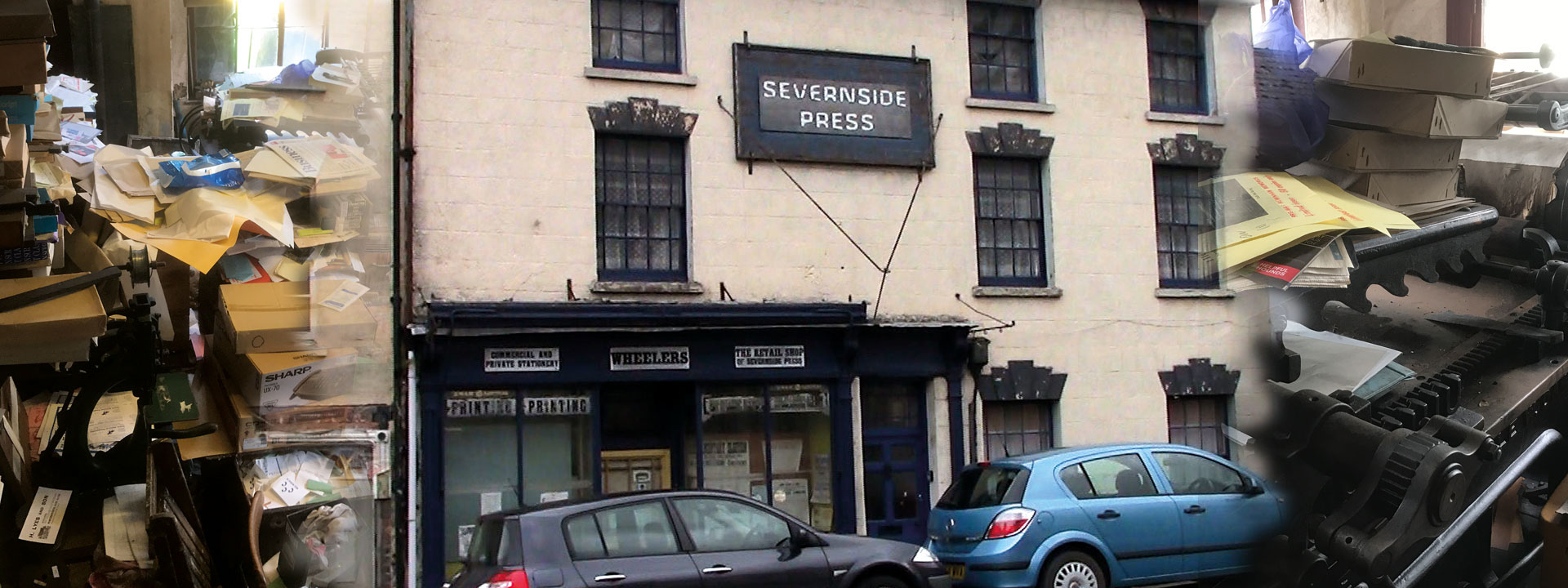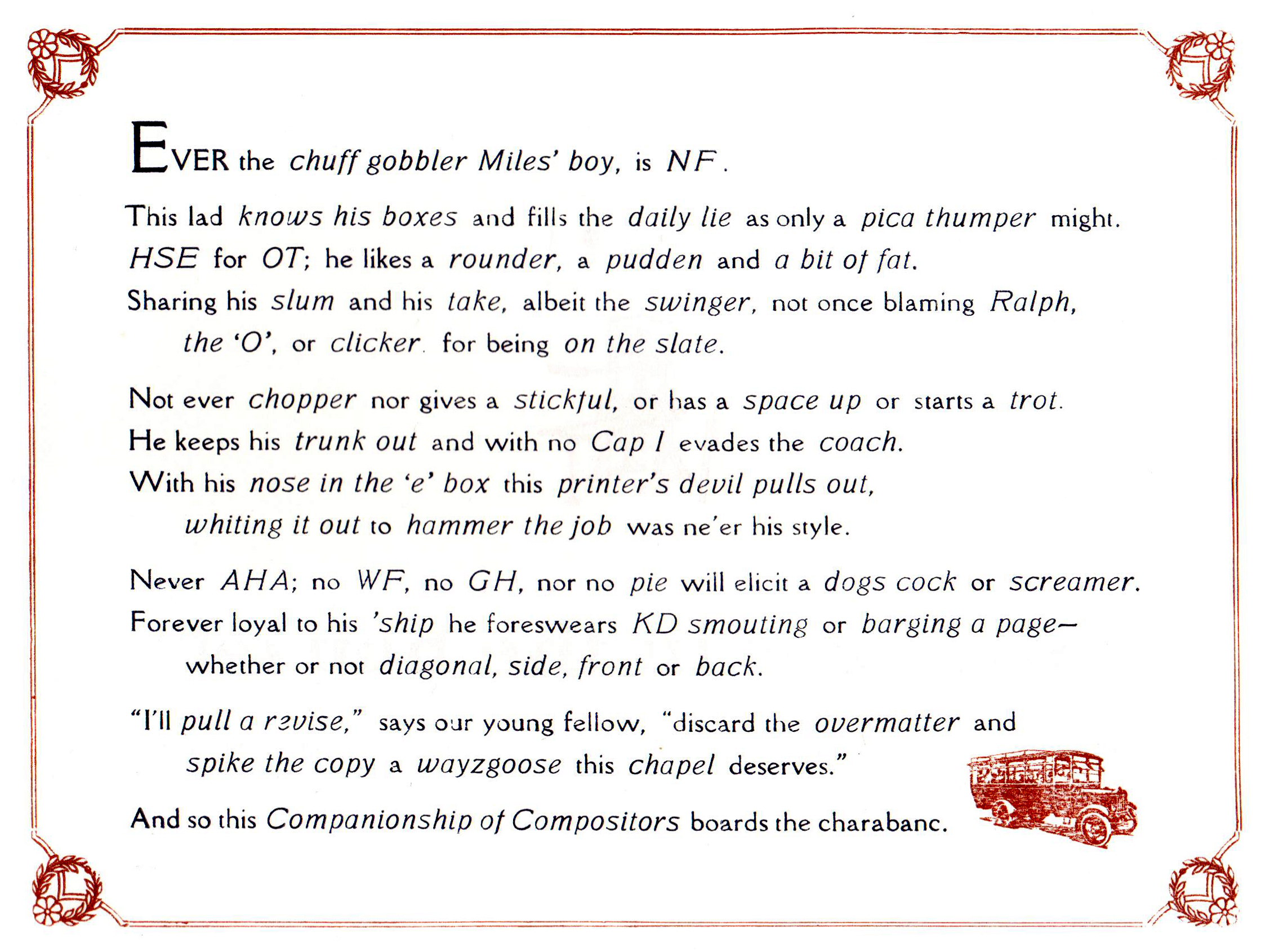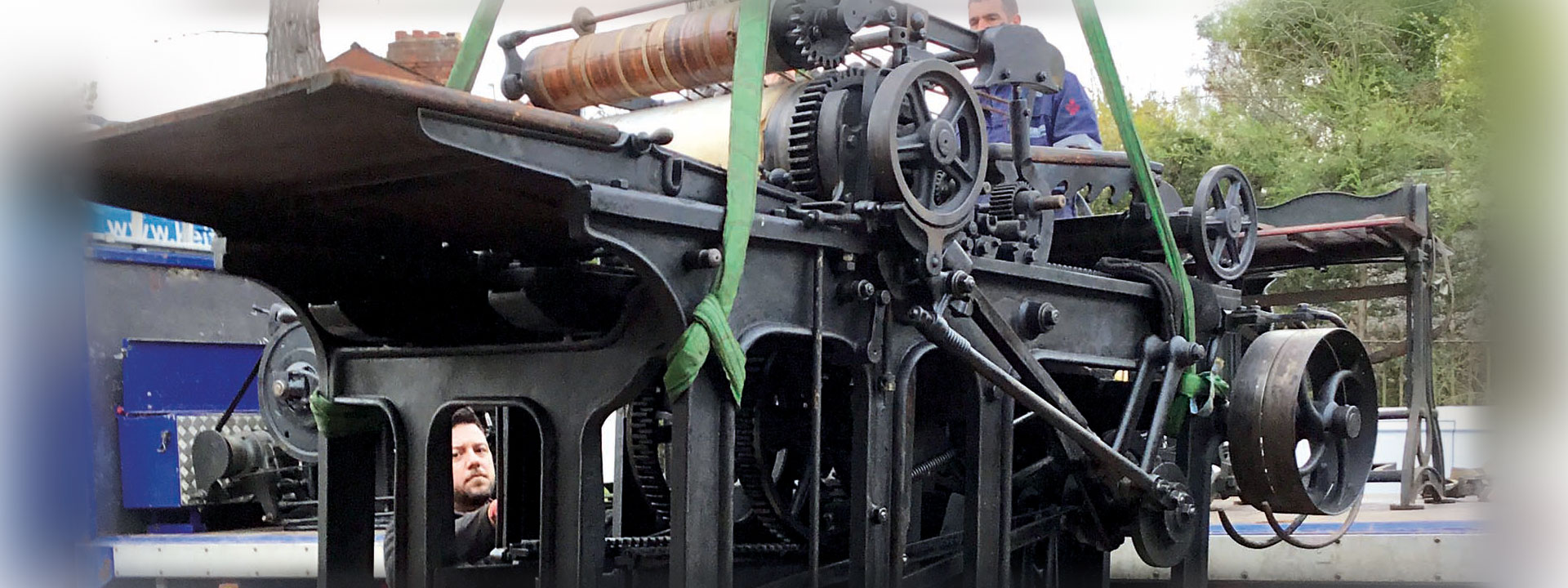A unique letterpress heritage
24 September 2020 | Admin

The Severnside Press was run by Bernard Wheeler until 2003 when illness and advancing years compelled him to stop. From then on the printworks remained suspended in time until the summer of 2018.
Bernard was proud to be a compositor and printer and it was an occupation he continued to be passionate about way beyond normal retirement age, simply because he loved it. It was evident also that he felt a responsibility for preserving the considerable historical significance of the business he had inherited from his father.
“I am 88 years of age, nevertheless reluctant to say goodbye to print, particularly since this business was established in early 19th century”. Letter to Paul Warne, 28th November 2011.
He tried desperately to have the business adopted as a working print museum – believing it to be of comparable significance to Robert Smail’s Museum in Scotland – but the funding was never found. Although he could do limited physical work after 2003 he continued to pursue this dream, by writing letters to many individuals and organisations, until his death in March 2018.
There is little doubt that the Severnside Press has a very long history and Bernard’s contention that a print business had been established on the site for almost two hundred years is not too far wide of the mark. Our research indicates that William Fryer, Bookseller began trading from Newnham in 1830, continuing to run his business until his death in 1879 when it was taken over by his son William Sidney Fryer. Throughout this time the Fryers were variously described as Booksellers, Stationers, and in later years Printers also.
After W S Fryer died in 1910 the business was purchased by William Wesley Stafford and he ran it until his early death at the age of 42 in November 1921. According to Bernard his father, William Robert Wheeler, subsequently purchased the business in 1922 from Mr Stafford’s widow and the evidence in local trade directories of the time support this contention.
It would appear that Lilian Wheeler ran the business after her husband’s death in 1945 with Bernard taking over in 1965.
Bernard kept everything of interest, and more, for decades and the business archive for the years between 1912 and 1986 have been lodged with Gloucester Archives (D8000) for posterity. Unfortunately most of the business’ history prior to 1919 was, according to Bernard, ‘a mystery’, not least because the deeds to the property disappeared at some point following the death of a local solicitor who had them in his possession.
We don’t currently know whether the iconic letterpress printing machines were bought new by the proprietors of the Severnside Press or purchased second hand. If William Fryer left his son a thriving business in 1879 after trading for almost 50 years it would be pleasing to think that Fryer junior was responsible for purchasing the Wharfedale in 1895 and the Arab in 1900.
The high street printers at Newnham-on-Severn that would evolve into Severnside Press had its inception at an important time in printing history – shortly after the first introduction of iron presses – and would continue to produce business and social stationery, posters and other ephemera throughout the letterpress years into the modern digital era. Foremost a jobbing printers it would have provided an invaluable service to the collieries, railway companies, hotels, social clubs, schools and sundry other businesses throughout the Forest of Dean and beyond. The rich legacy of letterpress tools and printed ephemera that Bernard Wheeler was determined to hold on to helps shine a spotlight on the printing and social history of a bygone age.
© Deborah Hillyer 2019






